第339章
His chief reason for writing a notice of his grandfather's life was "to contradict flatly some calumnies by Miss Seward." This appears from a letter of March 27, 1879, to his cousin Reginald Darwin, in which he asks for any documents and letters which might throw light on the character of Erasmus. This led to Mr. Reginald Darwin placing in my father's hands a quantity of valuable material, including a curious folio common-place book, of which he wrote: "I have been deeply interested by the great book,...reading and looking at it is like having communion with the dead...[it] has taught me a good deal about the occupations and tastes of our grandfather." A subsequent letter (April 8) to the same correspondent describes the source of a further supply of material:--Since my last letter I have made a strange discovery; for an old box from my father marked "Old Deeds," and which consequently I had never opened, Ifound full of letters--hundreds from Dr. Erasmus--and others from old members of the Family: some few very curious. Also a drawing of Elston before it was altered, about 1750, of which I think I will give a copy."Dr. Krause's contribution formed the second part of the 'Life of Erasmus Darwin,' my father supplying a "preliminary notice." This expression on the title-page is somewhat misleading; my father's contribution is more than half the book, and should have been described as a biography. Work of this kind was new to him, and he wrote doubtfully to Mr. Thiselton Dyer, June 18th: "God only knows what I shall make of his life, it is such a new kind of work to me." The strong interest he felt about his forebears helped to give zest to the work, which became a decided enjoyment to him.
With the general public the book was not markedly successful, but many of his friends recognised its merits. Sir J.D. Hooker was one of these, and to him my father wrote, "Your praise of the Life of Dr. D. has pleased me exceedingly, for I despised my work, and thought myself a perfect fool to have undertaken such a job."To Mr. Galton, too, he wrote, November 14:--"I am EXTREMELY glad that you approve of the little 'Life' of our grandfather, for I have been repenting that I ever undertook it, as the work was quite beyond my tether."The publication of the 'Life of Erasmus Darwin' led to an attack by Mr. Samuel Butler, which amounted to a charge of falsehood against my father.
After consulting his friends, he came to the determination to leave the charge unanswered, as unworthy of his notice. (He had, in a letter to Mr. Butler, expressed his regret at the oversight which caused so much offence.) Those who wish to know more of the matter, may gather the facts of the case from Ernst Krause's 'Charles Darwin,' and they will find Mr. Butler's statement of his grievance in the "Athenaeum", January 31, 1880, and in the "St. James's Gazette", December 8, 1880. The affair gave my father much pain, but the warm sympathy of those whose opinion he respected soon helped him to let it pass into a well-merited oblivion.
The following letter refers to M. J.H. Fabre's 'Souvenirs Entomologiques.'
It may find a place here, as it contains a defence of Erasmus Darwin on a small point. The postscript is interesting, as an example of one of my father's bold ideas both as to experiment and theory:]
CHARLES DARWIN TO J.H. FABRE.
Down, January 31, 1880.
My dear Sir, I hope that you will permit me to have the satisfaction of thanking you cordially for the lively pleasure which I have derived from reading your book. Never have the wonderful habits of insects been more vividly described, and it is almost as good to read about them as to see them. Ifeel sure that you would not be unjust to even an insect, much less to a man. Now, you have been misled by some translator, for my grandfather, Erasmus Darwin, states ('Zoonomia,' volume i. page 183, 1794) that it was a wasp (guepe) which he saw cutting off the wings of a large fly. I have no doubt that you are right in saying that the wings are generally cut off instinctively; but in the case described by my grandfather, the wasp, after cutting off the two ends of the body, rose in the air, and was turned round by the wind; he then alighted and cut off the wings. I must believe, with Pierre Huber, that insects have "une petite dose de raison." In the next edition of your book, I hope that you will alter PART of what you say about my grandfather.
I am sorry that you are so strongly opposed to the Descent theory; I have found the searching for the history of each structure or instinct an excellent aid to observation; and wonderful observer as you are, it would suggest new points to you. If I were to write on the evolution of instincts, I could make good use of some of the facts which you give.
Permit me to add, that when I read the last sentence in your book, Isympathised deeply with you. (The book is intended as a memorial of the early death of M. Fabre's son, who had been his father's assistant in his observations on insect life.)With the most sincere respect, I remain, dear Sir, yours faithfully, CHARLES DARWIN.